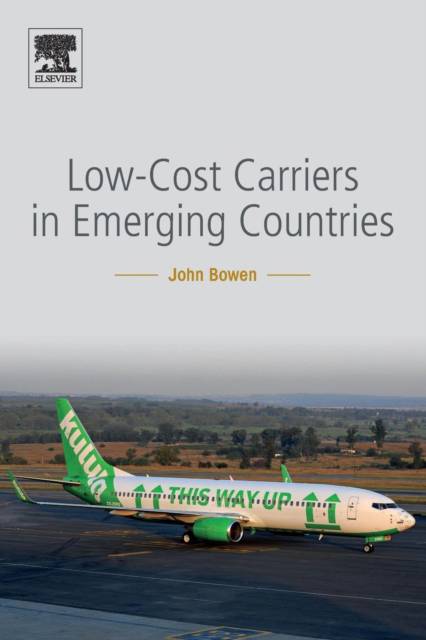
- Afhalen na 1 uur in een winkel met voorraad
- Gratis thuislevering in België vanaf € 30
- Ruim aanbod met 7 miljoen producten
- Afhalen na 1 uur in een winkel met voorraad
- Gratis thuislevering in België vanaf € 30
- Ruim aanbod met 7 miljoen producten
Omschrijving
Low-Cost Airline Carriers in Emerging Countries traces the development of low-cost carriers (LCCs) in Asia, Latin America, the Middle East and Africa, examining airlines that have become significant players in their home markets but little known at a global scale. The book maps the geography of the LCC phenomenon, explaining the starkly varying success of budget airlines, and assessing their current social, economic and environmental impacts. The book concludes with insights into the future potential of the LCC phenomenon along with its global ramifications.
Beginning with Southwest Airlines in the 1970s, low-cost carriers (LCCs) have democratized air travel around the world, fostering huge increases in airline traffic and transforming the airline industry. At the same time however, the ascent of these budget airlines has exacerbated aviation-related problems such as aircraft noise, airport congestion, greenhouse gas emissions and more. LCCs have been extensively studied in the US and Europe but not in emerging regions of the globe. Yet the impact of such airlines is greatest in low- and middle-income economies where only a small fraction of the population has ever flown, and where competition from alternative modes (road, rail) is weak.
Specificaties
Betrokkenen
- Auteur(s):
- Uitgeverij:
Inhoud
- Aantal bladzijden:
- 279
- Taal:
- Engels
Eigenschappen
- Productcode (EAN):
- 9780128113936
- Verschijningsdatum:
- 14/02/2019
- Uitvoering:
- Paperback
- Formaat:
- Trade paperback (VS)
- Afmetingen:
- 152 mm x 229 mm
- Gewicht:
- 376 g

Alleen bij Standaard Boekhandel
Beoordelingen
We publiceren alleen reviews die voldoen aan de voorwaarden voor reviews. Bekijk onze voorwaarden voor reviews.











